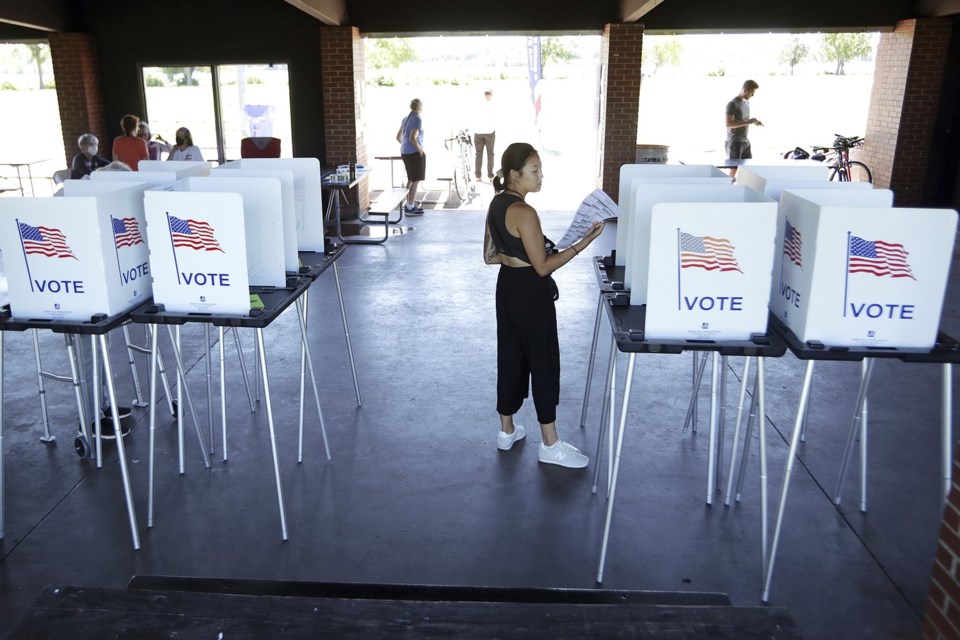MADISON, Wis. (AP) — Wisconsin's photo ID requirement for voting would be elevated from a state law to a constitutional amendment under a proposal up for approval Tuesday in the Republican-controlled Assembly.
Once passed by the Assembly, the proposed constitutional amendment would appear on the April 1 ballot for voter consideration. It would need to be approved by voters before the constitution would be amended. Even if voters rejected it, the voter ID requirement that has been in state law since 2011 would remain in place.
If voters were to agree to place the photo ID requirement in the constitution, it would make it more difficult for a future Legislature controlled by Democrats to change a law they've long opposed. Any constitutional amendment must be approved in two consecutive legislative sessions and by a statewide vote of the people.
Wisconsin is one of nine states where voters must present a photo ID to cast a ballot, and its requirement is the strictest in the country, according to the National Conference of State Legislatures. Thirty-six states have laws requiring or requesting that voters show some sort of identification at the polls, according to NCSL.
Other states have taken similar steps in recent years to put voter ID requirements in their constitutions, with mixed success. Voters approved it in Mississippi in 2011 and North Carolina voters in 2018, while Minnesota voters rejected it in 2012.
The Republican-controlled Wisconsin Legislature first passed the state's voter ID law in 2011. It took effect briefly in 2012, but courts that year put it on hold until 2016 after state and federal courts allowed it to take effect.
The Legislature last session approved the voter ID constitutional amendment for the first time. The measure was the first proposal considered by the Legislature this year. The state Senate passed it last week along a party line vote, with all Republicans in support and Democrats against. The Assembly on Tuesday was expected to give it the final approval needed before it would head to the ballot for voter consideration.
Lawmakers are moving quickly because of a Jan. 21 deadline to get the issue on the April 1 ballot.
Control of the state Supreme Court also hangs in the balance in that April election. The race for an open seat will determine whether liberals maintain control for at least the next three years. The Democratic-backed candidate, Dane County Circuit Judge Susan Crawford, was the lead attorney in a 2011 lawsuit challenging the voter ID law.
There are no pending legal challenges to voter ID.
The possibility of Democrats regaining majority control of the Legislature has led Republicans to enact a number of constitutional amendments to protect laws they passed.
Republicans put five constitutional amendments before voters last year, the most in a single year since 1982, and three more in addition to the voter ID proposal could be on the ballot in the next two years.
Wisconsin polls have shown wide public support for a voter ID law, despite opposition from Democrats and advocates who say it makes it harder for people to vote, especially the elderly and those without an ID. Supporters say the law has worked well in Wisconsin and provides a measure of security.
Even if the amendment is approved, lawmakers could still decide what types of photo IDs are acceptable. Voters without a photo ID could still cast a provisional ballot, as they can now. The ballot is counted if the voter returns later with a photo ID.
Scott Bauer, The Associated Press



